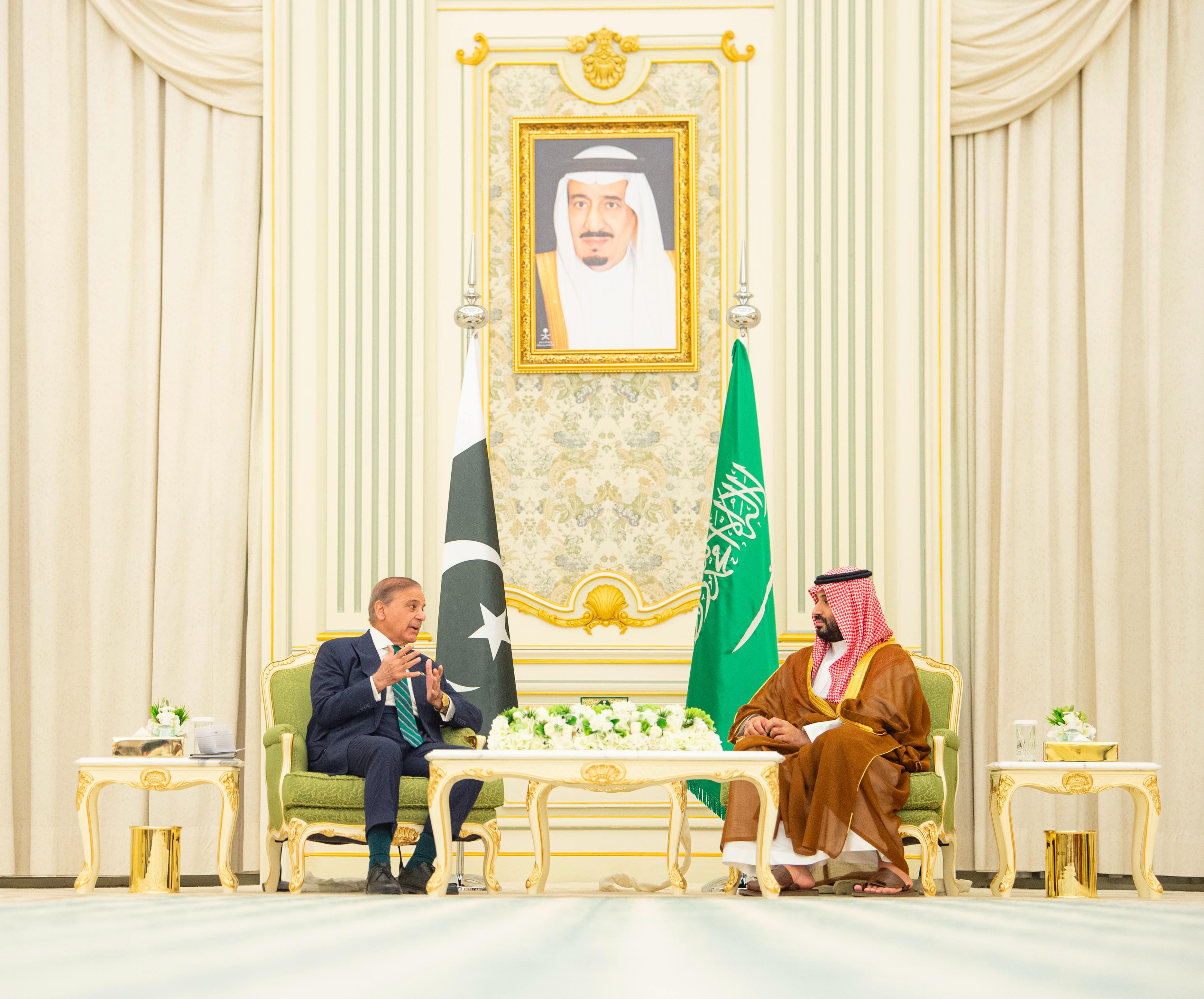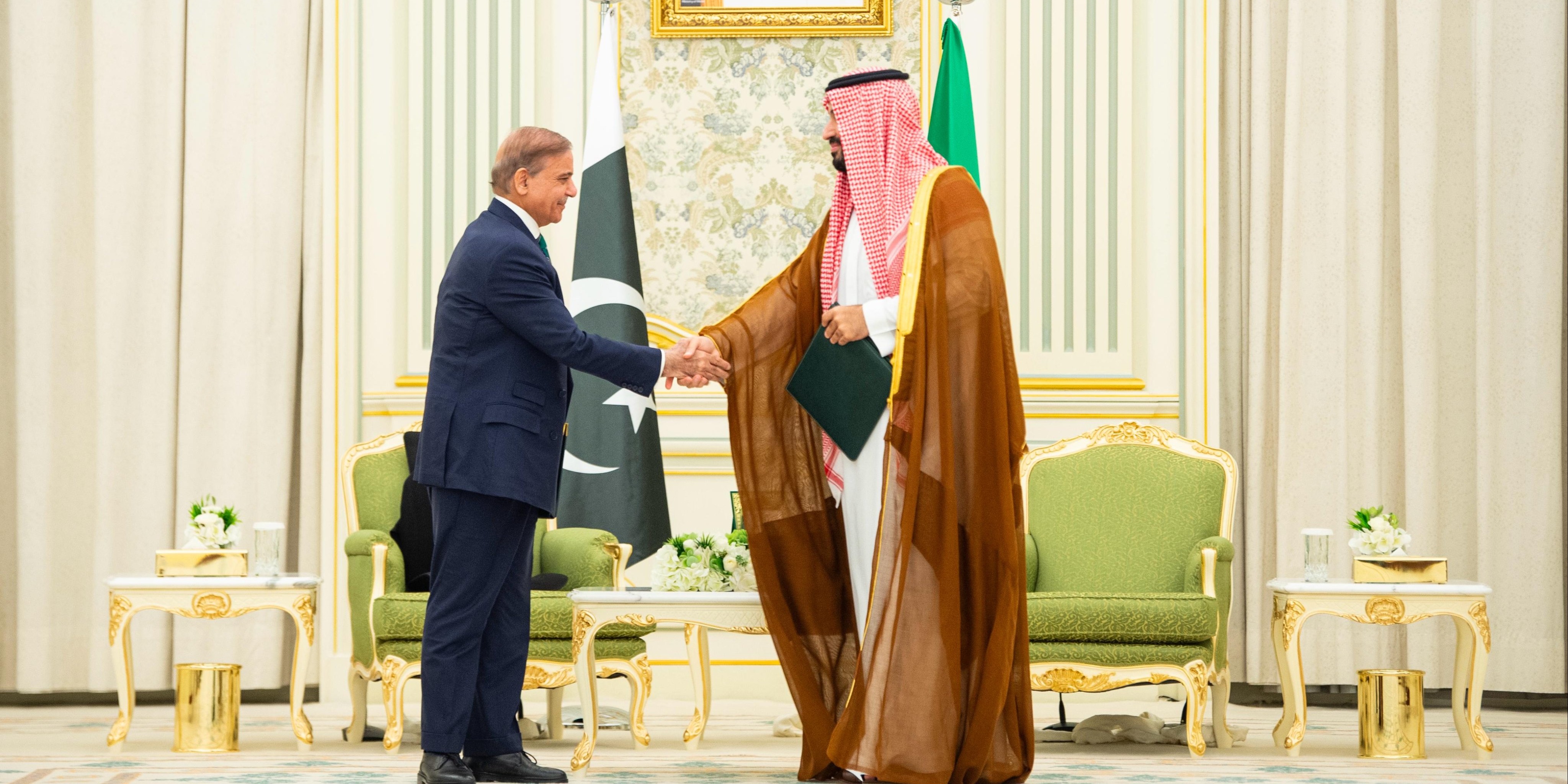Can Saudi-Pakistan defence pact serve as a template for similar agreements?
Saudi Arabia and nuclear-armed Pakistan’s strategic mutual defence agreement signed earlier this month could serve as a blueprint for similar defence alliances.
The strategic pact, signed in Riyadh by Crown Prince Mohammed bin Salman bin Abdulaziz Al Saud and Muhammad Shehbaz Sharif, Pakistan’s Prime Minister, during the latter’s state visit to the kingdom, aims to “develop aspects of defence cooperation between the two countries and strengthen joint deterrence against any aggression”.

The two countries have conducted a series of joint military exercises over the years, including the Al-Samsaam-VIII-22 joint exercise in 2022, and a more recent exercise conducted in Multan last year. The joint statement added that “any aggression against either country shall be considered an aggression against both”.
“KSA and Pakistan….one front against any aggressor…always and forever,” Saudi defence minister Prince Khalid bin Salman wrote on social media platform X, in the immediate aftermath of the deal.
The landmark agreement comes at a precarious time as the Mideast region continues to grapple with security risks fuelled by Israeli aggression, including its drawn-out atrocities on Gaza and strikes on neighbouring countries, which culminated in last week’s attack on Qatar’s capital.
The Doha attack, which challenged Qatar’s sovereignty and drew swift condemnation from regional and global states, including the UAE, Saudi Arabia, UK, France and Spain, was defining, with Qatar bordering Saudi Arabia.
While US President Donald Trump offered assurance that such an attack will not happen again on Qatari soil, Israeli premier held a different and a darker stance, warning Qatar that either it must “expel” Hamas members or “bring them to justice, because if you don’t, we will.”
Netanyahu’s dark promise casts a shadow of doubt over the region’s security, with its heat being felt beyond Qatar’s borders.
Muhammad Faisal, a South Asia security researcher at the University of Technology Sydney, said that the security architecture of Gulf has been stress tested during past four months twice: first by the Iran-Israel war, and second by recent Israeli airstrikes in Qatar.
“These events accelerated pressures on the Gulf’s security order since the onset of Gaza crisis, and particularly, Israel’s unilateral use of force across eight countries in two years. Gulf states are scrambling to bolster their security, as Trump administration reassess America’s military footprint across the globe."
It also sets a blueprint for similar agreements with other GCC states, he adds.
Pakistani defence minister Khawaja Asif told a local media outlet that the entry of other Arab nations in the incumbent defence agreement was not ruled out, and that the current pact carried no clause that obviates the entry of another nation or limits Pakistan from forging similar alliances.
Pakistan’s military ranks as the 12th most powerful in the world this year, out of a list of 145 countries gauged on military strength, according to Global Firepower Ranking. It trails India (4th) and Türkiye (9th), and lies ahead of Saudi Arabia (24th) and the UAE (54th). The country beefed up its defence spending to $9 billion for the fiscal year 2025-26, up 20% year-on-year.
Pakistan, the only nuclear-armed Muslim-majority country in the world, also recently emerged from an intense military showdown with neighbouring India. Both nations traded attacks over four days in May, striking each other’s military installations.
While the new agreement will build on years of defence cooperation and coordination between Pakistan and Saudi Arabia, the signaling and timing appears to be very distinct.
“What makes this agreement different from any similar step in modern Saudi history is its carefully chosen timing and binding nature. The agreement does not revolve around joint exercises or logistical cooperation, but rather around a direct defensive commitment — representing a shift from cooperation to pledge,” Mohammed H. Al Qahtani, CEO of Saudi Arabia Holding Company wrote in a LinkedIn post.
“Saudi Arabia does not host a permanent [US] base but only rotational deployments, granting it wider decision-making latitude. It has been the most targeted by missiles and drones over the past decade, thus bearing the greatest need.”
In the immediate term, this agreement will consolidate multi-dimensional defence cooperation already underway, adds Faisal.
"More crucially, the political and defence coordination between the two sides will deepen, while strengthening respective military capabilities of both countries. Certainly, this defence cooperation agreement [also] sets a template for similar bilateral defence cooperation with Qatar and the UAE."

